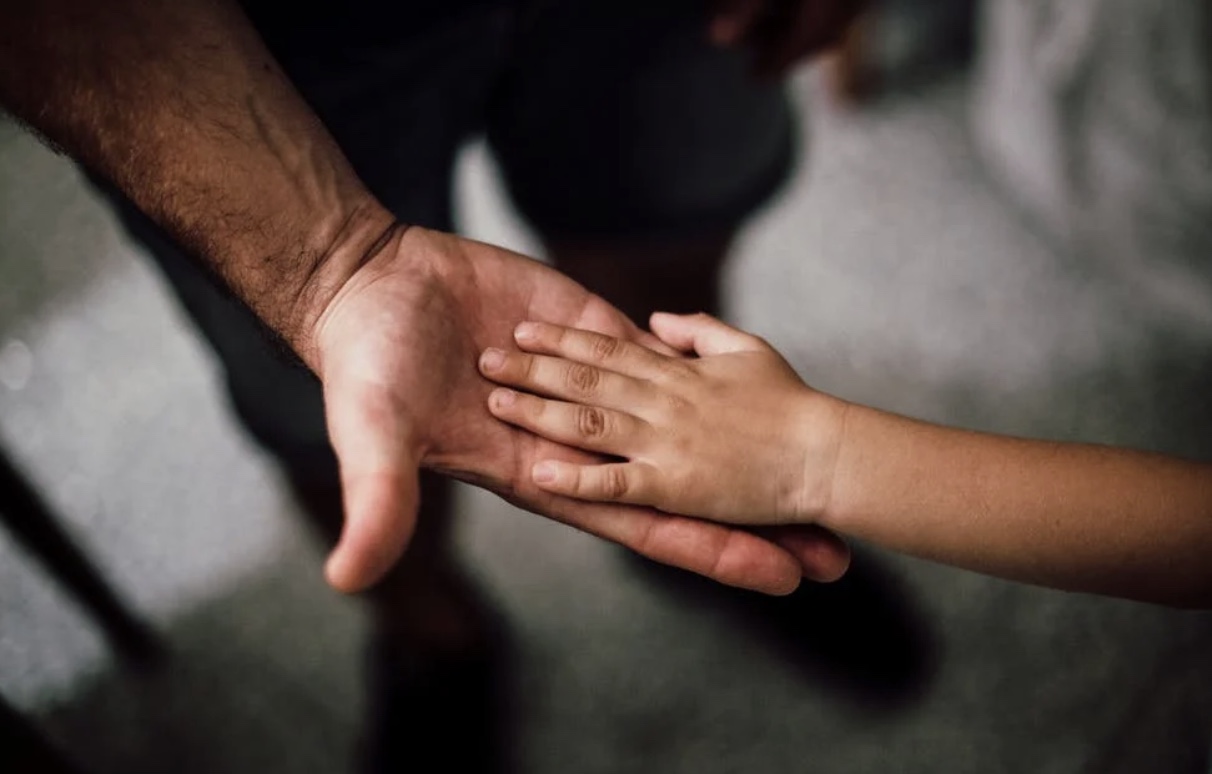It’s always difficult when you lose a loved one. But if you have children, things are going to be a tad more complicated. You will have to help them cope with and understand the loss too. This can be important whether they have lost a grandmother, an uncle or perhaps even a family pet. Any loss can be significant for a child and it’s important to make sure that you are handling this the right way.
The reality is that death is a fact or life. Eventually, everything that we know and love will be gone. That might sound like a bleak and depressing thought, but death and loss also ensures that life has meaning. It isn’t just a neverending cycle of grey. Unfortunately, this concept might be a tad complex for children and in particular young children, to understand. So, how can you help your child deal with loss?
Need cash now? If you find yourself in need of money for the funeral and to treat your children so they can quickly recover from loss, PaydayMint is the place to go.
Story Stages
Think About Age
First, you need to consider the age of your child. Their comprehension of death and level of understanding is always going to differ depending on how old they are. If you have two children, then this is going to be immediately apparent. If you tell a younger child that someone has gone, they’ll think that you mean they’ve gone next door or gone on holiday. Young kids can’t quite grasp the concept of something no longer existing. Or, at least no longer existing in the same world as us.
It’s around the ages between 5 and 7 that children start to develop an understanding that death is something which is permanent and therefore cannot be reversed or changed. Before this age, it’s almost impossible to tell children that someone is completely gone from this world. That’s why a lot of parents tend to keep things as vague as possible with phrases like:
Gone away for a while
Gone to a better a place
They’re somewhere that they are very happy
The classic example of this would be telling your child that a family pet has gone to live on a farm where they can run free and have a lovely life. There’s no harm in telling this to a younger child, but as they get older it’s the responsibility of a parent to explain things in a way that makes more sense.
Do be aware that while infants may not be able to cope with the concept of death or understand it as we understand it, they will sense your emotions and your feelings. They’ll recognize that you are sad about whatever has happened. Depending on how you explain it, your child will likely try and comfort you because they won’t fully grasp what has actually happened.
Remember, up until six years of age a child will believe that death can be reversed. So, if a hamster dies, then a child will assume it is not dead but rather sleeping. Eventually, it will wake up and it will be fine again once more. That’s why plenty of parents decide to replace a pet like a hamster that has passed away instead of attempting to explain what has really happened.
Between nine and twelve years of age a child is going to have the full understanding of death that adults have. But that doesn’t mean that their grief should be treated like that of an adult. It might be harder for them to deal with, particularly if it’s their first time to encounter death. So if you have a younger child you can keep things vague or potentially even mask what has happened. But how should you help an older child cope with this change?

Is Therapy An Option?
If you feel as though death is hitting your child quite hard, then you might want to consider therapy as a potential option. Cognitive therapy will help ensure that your child can cope more effectively with their grief. Do be aware that grief can have negative consequences for a child. It can cause them to experience anxiety or potentially even depression.
Seeing a therapist helps them to cope with death in a way that is healthy and will help them process it without consuming them. If therapy isn’t going to fit into their schedule or your budget, then you will need to be the one to speak to your child. Make sure that you sit down with them regularly to ensure that you understand how they are coping and what emotions they are processing.
Don’t forget, when someone is grieving it’s quite common for them to experience a wide range of different emotions and behaviors. Anger, denial and bargaining are some of the most common possibilities here and it’s possible that your child will go through all of these at some point during the grieving process.
Show Them They Will Be Remembered
For children – and even adults – it’s important to show how loved ones will continue to live on, even after they are gone. Older children know that death is permanent and irreversible, but they still want to feel as though that the person they held dear is going to be around in some form.
One of the best examples of this is memories. You need to let your child know that even though someone is gone, they will always live on in the memories that they have shared with the people in their life. It’s great if you can discuss different memories that your child had of that person. Look at old family photos and videos. Make sure that they feel as though the memories will continue to last a lifetime long after they say goodbye.
There are other ways that someone can be remembered too of course. For instance, you might want to teach your child about the significance of ashes. Ashes of a loved one can be kept close so that you can continue to feel their presence around them. You can get lovely urns for the family home that will be the perfect way to store these ashes and keep them in the minds of your child who is dealing with their loss.
Let Them Say Goodbye
If your child is old enough to understand death, then they are also old enough to say goodbye. A lot of parents tend to keep their child from saying a final goodbye because they believe it’s going to be too traumatic for them. However, not being able to say goodbye can lead to lingering thoughts and things that have been left unsaid. Unfortunately, this can actually be far more distressing in the long term. As such, if your child asks to say goodbye, then you should consider letting them proceed with this possibility. This is something to keep in mind if you know someone is going to pass away because they are ill or unwell.
What About The Funeral?
Next, you should think about the funeral. A lot of parents believe, perhaps rightly, that kids shouldn’t attend a funeral. They either think that it is going to be too traumatic and stressful or that they’ll become a distraction during the event. This is definitely a concern with younger children who again, won’t fully understand what’s happening here.
Despite this, it’s arguable to say that a funeral will help a child cope more effectively with the grief and the experience that they are processing. Experts simply suggest that you prepare your child for what to expect at a funeral. If you let them know what’s going to happen in terms that they understand, it will always be far less shocking.
You Don’t Need To Have All The Answers
Finally, it’s worth noting that you aren’t expected to have all the answers here. A child may expect you to because they see you as someone that can explain everything to you. But that’s not realistic. No one knows with 100% certainty what happens after death or even why we die. A lot of people have ideas but there’s no way to say without any doubt. This is something that is worth keeping in mind because it can help you understand death from the perspective of someone who is encountering it, perhaps for the first time.
It’s also worth mentioning that there really is no right answer. Some argue that you should always be honest with your children when helping them deal with death. Others claim that there’s no point in complete honesty because they won’t fully understand what you are saying. Ultimately, you’ll have to try and use your best initiative to help your child process this change in their life and ensure that it doesn’t cause any negative long term issues.
 We hope this helps you understand some of the key steps that you should take to ensure that you are supporting your child when it’s time for them to say farewell to a loved one. Do remember that the right steps to take here will often largely depend on the age of your child. Younger children will need death explained in simpler concepts compared to the complex explanations that can be broken down for older kids.
We hope this helps you understand some of the key steps that you should take to ensure that you are supporting your child when it’s time for them to say farewell to a loved one. Do remember that the right steps to take here will often largely depend on the age of your child. Younger children will need death explained in simpler concepts compared to the complex explanations that can be broken down for older kids.
